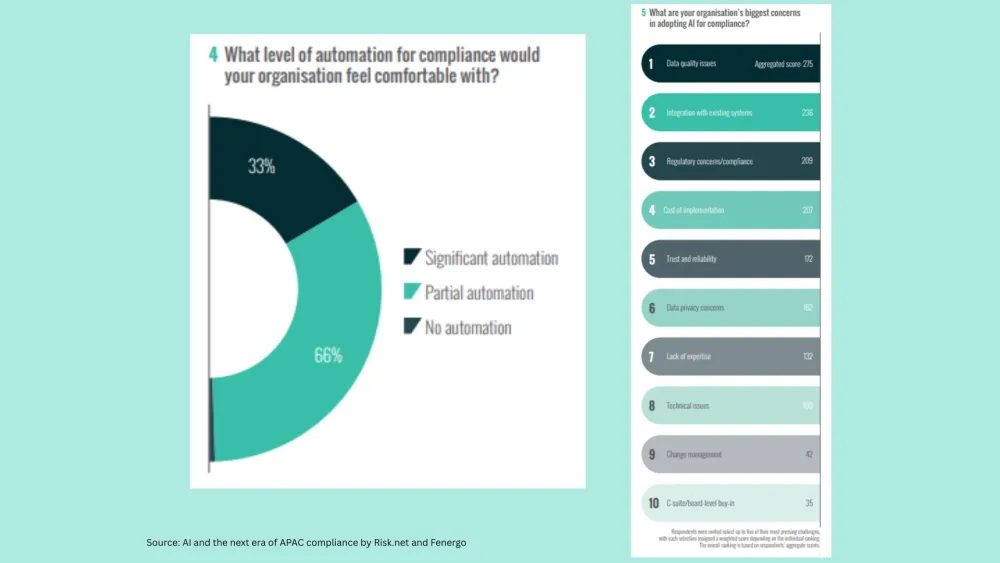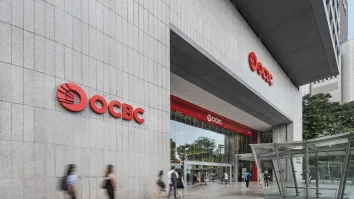
Traditional finance and crypto can work hand-in-hand, says DigiFT CEO
DigiFTs CEO Henry Zhang advocates growth through collaborative innovation, risk management, and regulatory compliance in finance.
Amidst the booming crypto markets in Central and Southern Asia and Oceania, a measure of caution hangs over challenges impeding the industry’s potential growth. Mindful of the pronounced gap between traditional and decentralised finance, DigiFT’s founder and CEO, Henry Zhang, has underscored the need for strategic collaboration and innovation to propel sustained growth of the industry.
Speaking to Asian Banking & Finance at the recent Singapore Fintech Festival, Zhang said that with the flourishing of financial technology, it is imperative to work actively with regulators to strike a balance between innovation and risk mitigation.
“The financial industry never resists using new technologies, but technology evolution never ends. And there’s always a new thing coming out. Recently, we talked about blockchain, there are some other newer services like AI, etc.,” said Zhang, noting that it has become “very natural” to look at new technology and use it.
Embracing new technologies
The region known as Central and Southern Asia and Oceania (CSAO) hosts one of the world’s most dynamic cryptocurrency markets. Whilst it ranks as the third-largest crypto market by raw transaction volume, accounting for nearly 20% of global activity, its significance becomes even more apparent when considering grassroots adoption.
The Global Crypto Adoption Index places six CSAO countries — India, Vietnam, the Philippines, Indonesia, Pakistan, and Thailand — in the top ten globally, according to Chainalysis’ 2023 Geography of Cryptocurrency Report.
For Zhang, it is important that DigiFT explores the factors driving this paradigm shift and the strategies employed to navigate the intricate intersection of tradition and innovation.
He emphasised the financial industry’s historical inclination to embrace transformative technologies. From telecommunication to the internet, the sector has consistently been an early adopter.
According to Zhang, the latest entrant into this lineage is blockchain technology, a natural fit for the financial industry, addressing challenges like trust-building and instant settlement.
“The key features of this technology are very fit for the financial industry,” he said.
There have been recurrent patterns in adopting new technologies: initial unfamiliarity, curiosity, piloting solutions, and ultimately realising the need for a comprehensive approach.
Zhang stressed that the current wave, centred on digital assets and stablecoins, signifies a shift from questioning the technology’s viability to determining where and how it fits into the existing financial ecosystem.
Crucially, the DigiFT CEO dispels the misconception that adopting new technology necessitates abandoning existing systems immediately.
Instead, he advocates for a complementary relationship between the old and the new, leveraging the strengths of both.
In the interview, he drew parallels with the internet’s evolution, pointing out that initial drawbacks, like slow speeds, eventually gave way to groundbreaking capabilities.
Bridging traditional and decentralised finance
When asked about the strategic vision for Asian fintechs navigating the convergence of traditional and decentralised finance, Zhang outlined a dual perspective. He said he has observed a clear trend of convergence, with innovative startups and established institutions actively engaging in the space.
“On one side, you can see a lot of new innovative super ideas, companies’ initiatives, like the private-public side,” Zhang said. “On the other side, you can also see these traditional institutions that are quite well-established institutions. And of course, in previous years — this is a very clear trend on both sides — they’re moving potentially toward convergence, which is a very good trend in the long-run.”
Zhang stressed the necessity of a handshake between the public (regulation) and private (innovation) sectors, fostering collaboration rather than conflict. So, he applauds the collaborative efforts of governments and regulators in embracing innovation whilst ensuring regulatory compliance.
However, the lag in regulations becomes a nuance to innovative frameworks for the industry. Zhang acknowledged that regulations tend to lag behind innovations and emphasised the need for a continuous dialogue between innovators and regulators.
It is the handshake model — where both sides respect and understand each other’s needs — that Zhang advocates.
“The good model is collaboration. We also see the public and private collaboration. Not only Singapore, but many other countries are also embracing innovations and innovators like us. Because we need a regulation to provide clear guidance in terms of what can be done, and what cannot be done, and also provide joint protection to the market participants,” the DigiFT CEO stressed.
He said initiatives such as regulatory sandboxes and proof-of-concept (POC) projects are vital aspects toward mending the relationship of traditional and decentralised finance. Regulatory sandboxes provide innovators with the opportunity to launch real-world projects within agreed boundaries, allowing for experimentation within a regulated framework.
Addressing risks is also a top priority for fintech companies navigating the decentralised finance space.
Zhang also underscored the importance of a risk management mindset, encompassing compliance, regulatory, and financial risks. Reflecting on recent setbacks in the industry, he emphasises that many issues are not solely technical but conventional financial problems that arise when new technology is misused.
“Innovators, first of all, should have the mindset of risk management… not just purely or overly focused on the benefit of the technology itself. Technology is a tool. The tool will be better,” he said.
“First of all, we need to be aware of the risk aspects of the setup. Then, we can talk about what type of risks. Compliance risk is one thing, risk management is another thing. You look back over the last 12-18 months, there are multiple so-called back seats that happened in the super blockchain finance world,” he added.
A positive horizon
Zhang concluded the interview by forecasting optimism about the future of decentralised finance. The benefits of transparency, efficiency in settlement and clearing, and security are too compelling to ignore from his lens.
The top fintech executive noted that there is an expanding dialogue within mainstream financial players about integrating these innovations. With regulators actively participating and innovators experimenting responsibly, Zhang foresees a collaborative and promising future for the confluence of traditional and decentralised finance in the Asian fintech landscape.
“I’m very positive about the adoption of this new technology. It is no longer whether or not questionable – whether it’s above the where and how. Why are the people not talking about where and how? Because more and more people see the benefits of this new safe decentralised, blockchain-based finance. Some people quit decentralised finance but anyway, no matter what you call it, it is something new,” Zhang said.



















 Advertise
Advertise











